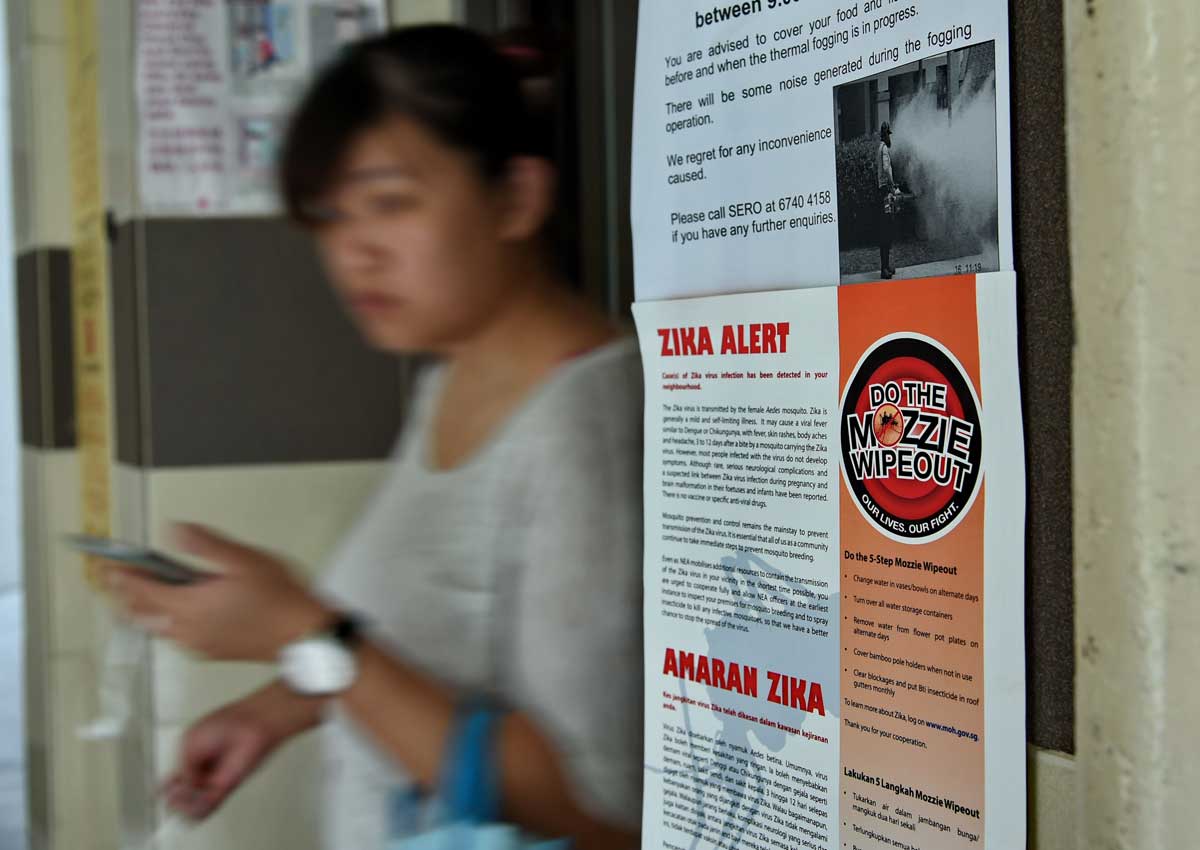SINGAPORE – Pregnant women in Singapore with symptoms of Zika – such as fever, rash, red eyes or joint pain – are advised to be tested for the virus, according to a statement from the Ministry of Health (MOH).
Pregnant women with male partners who are Zika-positive should also be tested, regardless of whether they have been to Zika-affected areas, and even if they do not display symptoms of the virus.
Testing will be free at public healthcare institutions for pregnant women who meet the criteria and are referred by their doctors.
In the statement on Aug 30, MOH added that while there is currently no evidence that women are more likely to get Zika virus infection, the consequences can be more serious if a pregnant woman is infected, as Zika virus infection can cause microcephaly in the unborn foetus.
Microcephaly is a congenital condition in which the head size is much smaller than usual for a baby of the same age, race and sex.
According to MOH, if a pregnant patient is confirmed to have Zika infection, she will be referred to a maternal-foetal medicine (MFM) specialist for counselling and advice.
The doctor may recommend regular ultrasounds to monitor for foetal growth and abnormalities. MOH will also arrange for the expectant mother to be admitted to a public hospital for further management and care if necessary.
Amniotic fluid testing for Zika may be offered if the woman is more than 15 weeks pregnant, said MOH.
However, it added that as there is currently not enough research to ascertain the effectiveness of testing for Zika in amniotic fluid, a positive Zika test in amniotic fluid does not mean that the foetus will definitely have birth defects.
MOH cited a recent study published in the New England Journal of Medicine which found that the risk of an infected mother giving birth to a child with microcephaly is between one to 13 per cent.
Pregnant women are advised to undertake strict precautions against mosquito bites and seek medical attention immediately if they display symptoms of the virus.
MOH also advised women with confirmed Zika virus infection to abstain from sexual intercourse for at least eight weeks after recovery.
Men with confirmed Zika virus infection but whose female partner is not pregnant should also adopt safe sexual practices or consider abstinence for six months after recovery.
See also: How pregnant women can avoid infection
candicec@sph.com.sg


































